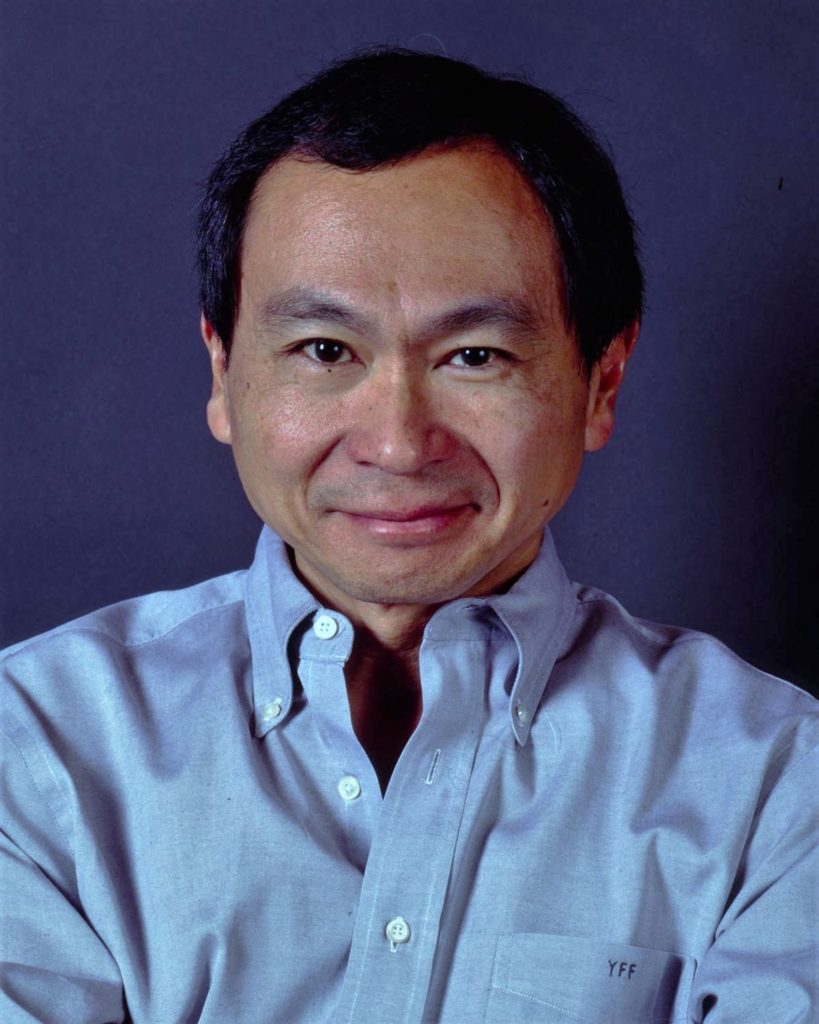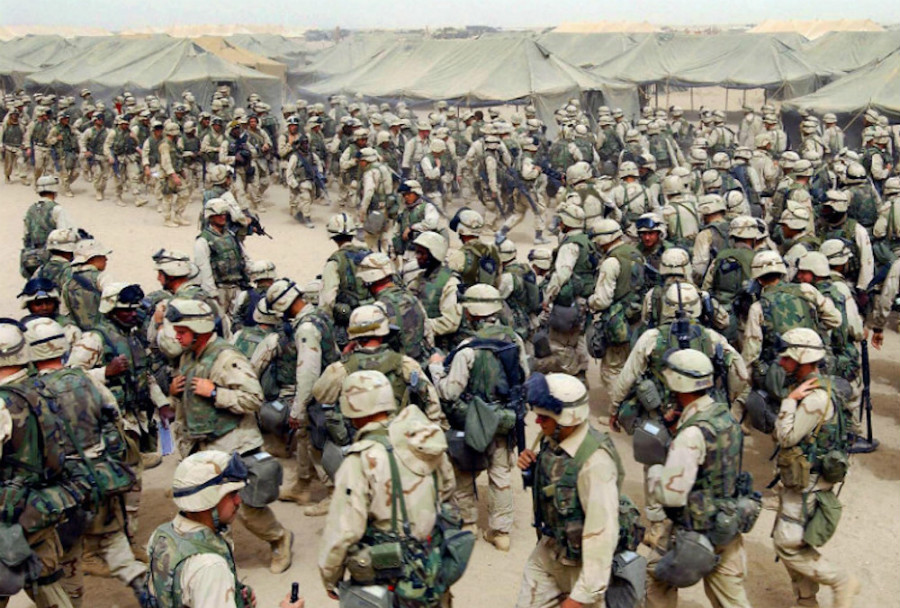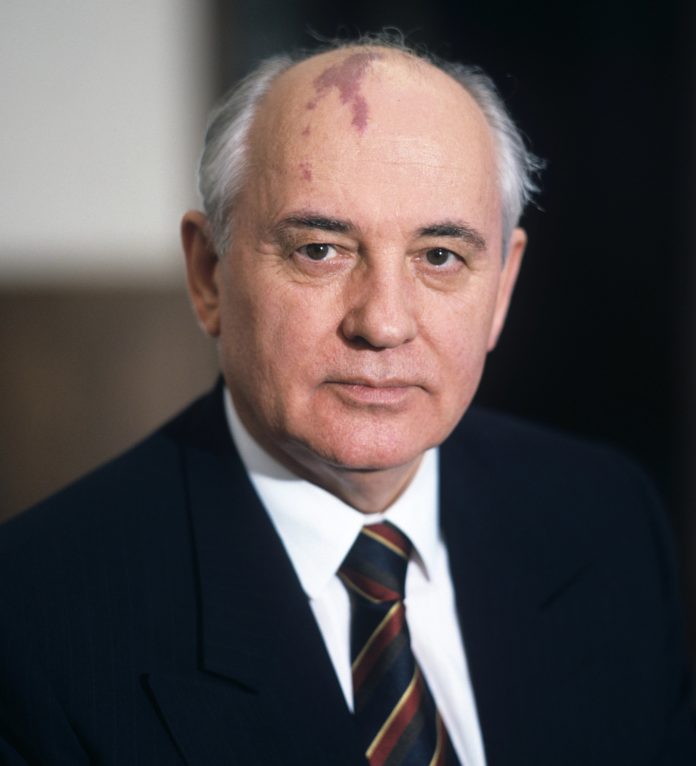The decades long period of Soviet-American confrontation under the shadow of the Cold War marked an unending competition between Moscow and Washington. The emergence of Mikhail Gorbachev in Soviet Union and his reorientation of Moscow’s strategic position in world politics served to dismantle the Union of Soviet Socialist Republics in 1991. The dissolution of Soviet Union let the American policymakers declare the end of the forty year Cold War. Leading state officials of the Bush administration termed the converting of Soviet Union into Russian Federation as the defeat of Moscow. No doubt the end of communist rule over the fifteen Republics of the Soviet Union provided sufficient chance to the United States for the promotion of American values across the globe but the strategic clash between the White House and the Kremlin remained an undeniable reality in the international system. The subsequent political developments in the great power politics witnessed the continuation of Washington-Moscow competition in the international system.
The post-Cold War phase of world politics observed various changes in the favour of United States. A wide range of scholarly engagements from different parts of the world supported the role of Washington in the international affairs. The advancement of American supported unilateral attributes in the brief Soviet-less period of world politics was admired in western theoretical domains. The conceptual features of western scholars not only accepted the concepts of a New World Order in the transitionary period of world politics, they acknowledged the American perceived unilateral structure of international relations under Washington’s leadership. The prevalence of Bush’s coined term of New World Order in the international system defined various features of international system under American leadership. The fundamental purpose of the New World Order was to govern the post-Soviet period according to American ways while enhancing Washington’s engagements across the globe.

Another considerable development in the form of The End of History and the Last Man further supported the notion of American supremacy in the world. It was an American way of looking at the international system which was constituted by Francis Fukuyama. He attempted to predict the international order under American values. The broader vision of his ideas advocated the widespread promotion of liberal democracies and capitalist based market economies. In this way, Fukuyama unrealistically selected the western political attributes cemented solely in American values as the last format of human history. Apparently, it was an admiration of Washington’s increasing role in world politics in the absence of potential counter balancing forces. Apart from Fukuyama, several other political scientists invested their intellectual capacities in lionising the Soviet-less international system under American dominance.
The leading commentators of international relations advocating the American expanding values in the world were actually influenced by Washington which heavily affected their pragmatic approach of analysing the world politics. Theoretically versions of world politics were mainly ignored by the American influenced academic communities of the west. A brief period of crisis in Moscow during the two regimes of Mikhail Gorbachev and Boris Yeltsin gave an appropriate place to the United States in the world politics. An advancing version of US activism was challenged before the realist driven standards of international system where status quo can survive temporarily. The undeniable principles of power politics in international system rapidly started to underestimate Washington’s way of managing international relations.
The undeniable realities of the twenty-first century and the emergence of non-traditional security threats surprisingly changed the course of human history. The transnational nature of security threats in the new world not only altered the strategic outlook of international relations but it also undermined the traditional approaches of states for managing their positions in world politics. Such characteristics of a changing international system hampered Washington’s perception of ongoing power politics which was exactingly inherited in the Cold War politics. The American strategic thinking developed during the confrontational period of the Cold War lost its significance before the crisis of the twenty first century. In the wake of new century, the tragic incident of 9/11 shocked the leading national security architectures of Washington. The conventional national security mechanism for addressing traditional security threats emanating from rival gathering of communist leaders became an outdated element for Washington.
In reaction to the terrorist attacks of September 2011, the security pundits of Bush administration decided to initiate a global war against terrorism. The initiation of war on terror was perceived to be another factor which could effectively help Washington in maintaining of its global superpower status, because the American security establishment launched a global campaign to counter terrorism. No doubt, the US-led global counter terror coalition considered another way of dominating the international system, but it intensified American global engagement in world affairs. In this way, the world of new realities demanded Washington based security establishment of United States to change their traditional prism of analysing the international system. In order to achieve the main objectives of the counter terror alliance, Washington preferred to prevent the potential threats to American position in the world. The divisions of states between Axis of Evil and Rogue States apparently showed the United States’ commitment for managing the international relations, but it dramatically deepened the American role in the world politics.

The widespread US engagement in diverse regions raised an unbearable wave of anti-Americanism around the globe. An overwhelming global tendency of anti-American thinking mushroomed which consistently fabricated an international environment of American antipathetic sentiments in the world. Washington’s presence in various countries under the broader anti-terror alliance was considered to a probable situation where an outbreak of war could be possible. Such sentiments cultivated an international tendency of anti-American thoughts. Majority of Muslim countries started to reflect a zenith level of an anti-American thinking which was the result of Washington’s greater support to Israel. In addition to turning a blind eye to Tel Aviv’s belligerent behaviour against Arab states, the American invasion of Iraq for search of Weapons of Mass Destruction and the presence of its forces in Afghanistan added fuel to the fire. Therefore, the wars in Iraq and Afghanistan caused an irresolvable damage to both countries while posing a serious question to American initiated war on terror. Moreover, the deteriorating security situation in Middle East under the rubric of the Arab Spring further attached a stigma to Washington’s global image.
In order to dominate the international nuclear politics, the Washington-based advocators of global arms control efforts have always supported the global non-proliferation regime. An effective implementation of international nuclear non-proliferation regime by supervising the states’ nuclear ambitions posed another challenge to the United States. American role in the global nuclear politics reveals a dichotic version of Washington’s non-proliferation policies which mainly indicate contradictory behaviour. Despite encouraging the states for remaining loyal to the international non-proliferation, the leading state authorities from Washington are busy in signing of nuclear deals with different states. Moreover, critically evaluating the nuclear and missile programs of a few countries also reflects an American behaviour lacking in impartial principles. An international non-proliferation policy deficient to maintain a balanced worldwide approach has posed another challenge to the United States.
Additionally, the emergence of counterbalancing forces in the form of Russia and China has developed a different scenario in which the leading state authorities from Washington are unable to maintain supremacy of the United States. Presently, an huge wave of political changes in the Middle East have became an acceptable challenge for United States. American self-perception of its global dominating status served to increase Washington’s global engagement on the one hand. On the other hand, this has posed number of serious threats to the United States. In this way, the conventional wisdom United States for managing the international relations after the fall of the Soviet Union has become an outdated feature for Washington. No doubt, the disappearance of Sovietism from the face of the world provided great confidence to the United States but the architectures of national security strategy from Washington proved inefficient in stabilizing American supremacy. Therefore, in the absence of a theoretically solid and practically balanced approach can rescue the United States in the contemporary age of unseen security threats. The absence of a theoretically impartial and practically balanced approach constructed on pragmatic values can push United States more into crisis. The timely actions based on non-traditional way by leaving the Cold War mindset has become an essential element for Washington.




